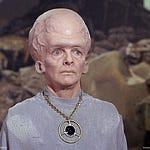Written by Matthew Archer.
Petrograd (now Saint Petersburg), Russia, February1 1917
February is always freezing in Petrograd. Temperatures can drop to minus ten at night. Almost nobody has heating in their home — most ordinary workers are grateful if they can afford a few extra blankets. And this February the weather is even colder than usual. Normal families snuggle up in bed together for extra warmth. Meanwhile, Russia’s ruler, Tsar Nicholas II, has central heating in his dazzling Winter Palace (he had a separate one for summer, of course). The palace is so big that the dining table can seat a thousand guests and the other rooms have space for ten thousand. Whilst it’s sub-zero outside, beautiful exotic plants bloom inside and tropical birds fly around the heated courtyards. The lighting sometimes makes Nicholas think it’s a summer’s day.
Outside, all is disorder and devastation. World War I has almost broken Russia. Food and fuel has been in short supply this winter and the exceptionally cold weather is making things much worse. The supply trains have just stopped. People queue for bread, factories begin to close and workers lose their jobs and what little money they have. But then the weather changes.
On February 23rd, the thermometers in Petrograd record 8 degrees. Thousands of people come out to enjoy what could be only a brief break from the icy cold. They also celebrate International Women’s Day. By midday, there are tens of thousands marching in the streets, they are mainly women. A seven-and-a-half-year-old boy watches all of this unfold from his apartment window, because his parents won’t let him out. He reads the bold demands from the women’s large banners as they flow by: Land and Liberty!, Down with the Tsar!, Down with War!.
As the crowd grows larger, the mood in the air changes; people want to vent their frustration with the Tsar. Factory women are joined by their men and the numbers swell to a 100,000 by the end of the afternoon. The people chant, they demand bread and rations for those who have fought in the war. Ordered to stop the protesters arriving at Tsar Nicholas II’s palace, inexperienced soldiers march towards the crowd. But the crowd does not stop. The soldiers do. Both — crowd and soldiers — mingle, hats are thrown in the air as everybody cheers the soldiers’ rebellion. They serve the people now.
Eventually, the young boy is allowed out with his governess (the lady who helps look after him). His parents are cautious, but his aunt and uncle are completely absorbed by politics and tell him something new every night at dinner — not that he understands much yet. The seven year old strolls along and spots a man selling books on the snowy street. But as he bends down to inspect a tattered book he hears shouting off to the side.
A small group of men are storming down the road pushing a beaten and bloodied policeman. His uniform torn, his face dirty, this man is one of the last loyal servants to the Tsar. The policeman tries to twist away from the small group, but it’s pointless. They have him surrounded and he knows. The boy sees only a brief few seconds of the skirmish before they all disappear around the corner. He’s not sure where they’re taking the policeman, but the look of terror in his eyes tells the young boy one thing: he will not escape with his life. This moment marks him, scars him for life. From here on out, violence disgusts him.
The next day is even warmer. Yesterday’s victories encourage 150,000 people to take to the streets. They meet at an important public square home to a large ugly statue of a former monarch on horseback, the revolutionaries have nicknamed it The Hippopotamus. People clamber onto the statue and start making speeches calling for the end of the monarchy. They do so in full view of the police. It doesn’t matter that most of the crowd can’t hear the speeches, they know now that a revolution is inevitable. Bizarrely, the mild weather continues for weeks. Tsar Nicolas II’s rule does not.
Some achievements are made after the February Revolution, but a later revolution in October paves the path to civil war. With many different tribes trying to gain power, a group called the Bolsheviks ultimately triumph. In the years that follow, anybody deemed a threat — peasants, clergy, striking workers — is labelled a counter-revolutionary and either jailed or killed. A man called Joseph Stalin eventually seizes power and things become even worse. His dictatorship leads to more death and suffering than even Hitler will inflict.
Over these years, the young boy’s family have many difficult choices to make, not least because they are Jewish. They must dodge both Stalin and Hitler. First they flee to Latvia, eventually, however, they settle in London. The boy goes to study at Oxford, where he will remain for the rest of his life. He will often think back to those early years in Russia, trying to work out how everything unravelled, trying to answer the question of how an oppressed society first won victory before losing everything. He will eventually extract several intriguing lessons from the nightmare that was the 20th century.
On the 31st October, 1958, the then middle-aged Russian refugee delivers his inaugural lecture. Little does he know that it will continue to be read by students of political philosophy long after he’s dead. He calls the lecture, Two Concepts of Liberty. The echoes of his formative years are heard on almost every page. The following lines are from the first:
[…] when ideas are neglected by those who ought to attend to them — that is to say, those who have been trained to think critically about ideas — they sometimes acquire an unchecked momentum and an irresistible power over multitudes of men that may grow too violent to be affected by rational criticism.
[…] philosophical concepts nurtured in the stillness of a professor's study could destroy a civilisation.
[…] may it not be that only other professors, or, at least, other thinkers (and not governments or Congressional committees), can alone disarm them?
Much has been written about Isaiah Berlin’s famous lecture, let alone his complete oeuvre, but it’s the lines above which haunt me, the idea that ideas themselves can destroy everything. In Berlin’s view, it was just bad ideas that lead to priests, monks, and nuns being crucified in the Red Terror of 1918, to being thrown into cauldrons of boiling tar, to being strangled and scalped, to being given Communion not with wine but with melted lead. The Darwinist might balk at this. No, it’s not about ideas, it’s about power! Ideas are epiphenomenal to biology! Marx said something similar, of course: Ideas are reducible to the material foundations of society, to the mode of production.
In today’s culture war, I often hear people make the claim that the majority of the woke left care only about power. In doing so, wokeism’s critics operate on the legacy code of postmodernism, itself programmed by proto-wokeists. As evidence, critics point to clear contradictions in their professed beliefs. Examples are endless. The first that comes to mind is the sacred cow that people are born LGBT, meaning genes matter, but genes quickly stop mattering once the implications are that a natural hierarchy might exist, say between men and women in sport. Yet we all have inconsistencies in our worldview whether we realise them or not — ‘I am large, I contain multitudes’, as Whitman wrote. Perhaps the number and degree of contradictions in the woke worldview is what convinces people that “it’s all about power”. But even if that were true, does such an analysis offer much by way of solutions? The reason some young Bolshevik men drilled holes in the ice to drown the Russian clergy was undoubtedly for power, but so what?
We can take Berlin’s point further: Bad ideas compound. Thick layers of institutional stupidity and common sense can grow from the seed of one or two bad ideas ‘nurtured in the stillness of a professor's study’. As Rousseau writes in the Second Discourse, considering how the notion of private property came to be accepted:
[it] depends on several prior ideas which could only spring up gradually one after another, it was not formed all at once in the human mind.
If Berlin is right that intellectuals are the only people capable of clearing the fog, of disarming the landmines we have placed under our own feet, what does that mean for us today? In The Strange Death of Europe, Douglas Murray makes a Berlinian observation. He notes that the mass movement of millions into Europe could not, by itself, have sounded our death knell. For that, we also needed to forget good ideas and believe bad ones:
Europe lost faith in its beliefs, traditions and legitimacy. Countless factors have contributed to this development, but one is the way in which Western Europeans have lost what the Spanish philosopher Miguel de Unamuno famously called the ‘tragic sense of life’. They have forgotten what Zweig and his generation so painfully learnt: that everything you love, even the greatest and most cultured civilisations in history, can be swept away by people who are unworthy of them. Other than simply ignoring it, one of the few ways to avoid this tragic sense of life is to push it away through a belief in the tide of human progress. That tactic remains for the time being the most popular approach.
If wokeism’s critics forget Berlin’s message, they will obviously lose. By resorting to a reductive analysis that everything is about power, what I think they actually mean is this:
“Don’t bother arguing with people whose beliefs are so perforated. They cannot be persuaded if they are that irrational, if they are so blinded that they cannot see the obvious contradictions in their thought or the horrific consequences which follow.”
I’m not suggesting that one needs to argue with lunatics, of course. But one should present an alternative story to the people who teeter on the edge of full-blown wokeism simply because it is the water in which they swim. The non-playable characters (NPCs) of the world are often reachable precisely because they will download whatever the latest the software update is. Ironically, this was perhaps most obvious to the Marxists. Fredy Perlman, for example, noted that:
In the performance of their daily activities, the members of capitalist society simultaneously carry out two processes: they reproduce the form of their activities, and they eliminate the material conditions to which this form of activity initially responded. But they do not know they carry out these processes; their own activities are not transparent to them. They are under the illusion that their activities are responses to natural conditions beyond their control and do not see that they are themselves authors of those conditions. The task of capitalist ideology is to maintain the veil which keeps people from seeing that their own activities reproduce the form of their daily life; the task of critical theory is to unveil the activities of daily life, to render them transparent, to make the reproduction of the social form of capitalist activity visible within people's daily activities.
Many critics of wokeism find themselves in a bind. They believe, with Berlin, that the first duty of government is never to ensure people flourish, but to avoid extremes of suffering. But the danger of negative liberty is that it creates a vacuum for other social forces to pour in and tell a captivating story. That, after all, is the true task of the “critical theory” Perlman invokes. Today’s heterodox elite must realise that most people find themselves in a hall of mirrors unable to walk straight. What they seek are guides, not critics.
Russia used a different calendar at this time, about thirteen days behind the one we use today. I use the old dates, as what happened was called the February Revolution, even though it happened in modern March.
Become an ISF supporter today from only $5 per month or $50 a year. Our supporters’ package includes:
Exclusive articles
You will get to hear my sweet dulcet tones as I narrate every article we upload. Worth the price of admission alone.
Livestreams with myself, Jonny Anomaly, and other guests
Submit questions to guests & gain access to the 3 special questions we ask guests.
Early access to podcasts & your name in the credits
You can also become a Patron (where we have more benefits on offer)











